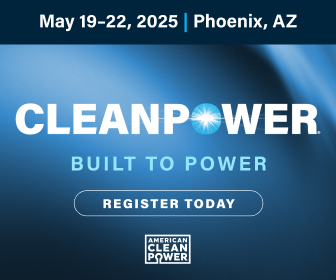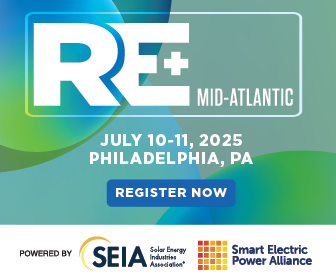Overcoming Title Roadblocks for Successful Solar Project Closings - Part II
Without land, a project cannot be developed. That land may not be acquired and financed without clear title. Too often, closings and financing are held up due to uncured title matters, due to any number of hurdles. Title to a project area may never have been examined nor title insurance previously issued. Title to the land may be fractionalized due to marriage, divorce, death of historical title holders, and more. Depending upon the number and type of title issues to be addressed, the curative process may be lengthy. Many pieces must come together to ensure a smooth closing.

Landowners as a resource
The person with the best knowledge of the ground and the title is likely the landowners themselves. While their knowledge of the legal history of the property may not be perfect, they know the stories that make it come to life. The developer has also typically given the landowner financial incentives to help the project move forward within the terms of the site control. With this understanding in their back pocket, one of the most helpful things a developer can do is to ask the landowner in-depth questions about the history of the land. Are there any mortgages on the property? How was the title received? Do they know of any outstanding mineral or other sub-surface interest rights, conservation’s easements, or other restrictive covenants that may have been placed on the land by them or a predecessor? Landowner’s answers to these questions can be invaluable throughout the due diligence and title searching process. To the extent possible, obtaining copies of any documents the landowner references will make life much easier for the developer and title insurance company.
Recording as protection
The next step for a developer is to record the memoranda of their site control as early as possible. Real estate is commonly referred to as a race to the courthouse — in most states, the person who has recorded first has the most superior rights. The act of recording a document protects the rights of everyone who is a party to that document. It puts the world on notice, in the public record, of the rights contained in that document. Signing a contract with a landowner protects the developers interests as against or with that landowner, but recording the contract (or a memorandum of it) protects the developers interests as against any other developer or landowner who may want to purchase or lease the property as well.

Priority becomes very important in worst-case scenarios. For example, a piece of property the landowner had previously mortgaged is under site control for a solar project. Site control was recorded in June 2020, and the mortgage was recorded in April 2018. The landowner used his initial due diligence payment from the developer to pay his mortgage. While waiting for the project to kick off, however, they’ve slowly run out of money and stopped paying, prompting the mortgage lender to begin the foreclosure process. Foreclosure is a statutory process, governed by the state’s specific rules. Any interests created later in time than the mortgage are wiped out by foreclosure. The solar developer not only has a new landowner to deal with after the foreclosure process, but also the potential of no valid site control, and may have to start over from square one.
The solution is a Subdordination, Nondisturbance, Attornment Agreement (SNDA) with the lender. The SNDA (also called a Lender’s Consent, or NDA) is an agreement entered into with the lender whereby the lender agrees to leave the developer’s site control interest in place in the event of default. In return, the developer agrees to pay their rents and other payments directly to the lender in the event the lender stops receiving payment from the landowner. This is a win-win, and should be a standard negotiation that occurs during the title curative process.
Mineral pitfalls
Mineral interests refers to the severance of underground mineral rights from the surface rights of the property. The rights can refer to natural gas, oil, coal, or any other types of minerals. As such, the developer may see a surface owner and several mineral owners noted on the title report or title commitment. If that is noted, it should flag that further research will be required. A typical title search covers the surface only, whereas a special title search must be conducted to add any outstanding mineral rights. The companies that search the surface and the companies that search minerals may not be the same, and a special expert may need to be brought in. The mineral search will provide the developer with a Mineral Ownership Report that can be used as a type of roadmap for understanding the additional parties to the project.

Mineral Coverage is an ALTA endorsement offered by the title insurance company that is typically required by any lender or investor as an addition to their policy, so it’s critical to get the title insurance company involved as early as possible to strategize what they may need in order to issue this endorsement. Typical considerations may include whether there are any active wells or mines in the area, any active leases given by the mineral owners, and whether the developer intends to leave part of the project area open, to protect the mineral owner’s right to exploration. In many states, mineral owners are the dominant estate holder, and have the right to enter onto the surface and use it to access the minerals.
The title insurance company will typically work with the developer to get various documents executed by the additional parties. They may require an Affidavit of Non-Production, if there is no activity in the area, or a Surface Waiver, which asks the mineral owner not to disturb the renewable project on the surface. In states where there is mineral activity, the mineral owners, leaseholders, or operators typically understand the value of the rights they hold, and will require financial compensation to negotiate these terms. Developers should research mineral rights under their projects as early as possible, to plan and budget realistically.
Crossing agreements
Many of the exceptions listed in the title commitment will be easements granted to the various utility companies over the life of the parcel. Utility companies historically did not receive specific easements, and many old easement documents are blanket in nature. Similarly, many old utility companies have changed ownership and entities numerous times. Therefore, the surveyor of the project areas may not be able to show what was recorded. In conjunction with the surveyor reporting any lines, monuments, and tags shown in the field, they are required to call “811” (or the local dig line) to identify what utilities may be physically, locally involved with the project area. Simultaneously, part of the title curative process is reaching out to all utilities listed with recorded easements, and understanding where their lines are located. Should part of the project cross or encroach into an easement owned by the utility, permission must be given. Permission may look like a Crossing Agreement, a permit or license, or a Letter of No Objection. All must be sent to the title insurance company to request the exception which reflects that easement removed. The title insurance company may require that these agreements be recorded.
Conclusion
Preparation and attention to detail are critical in managing projects. The strategies presented here are the result of many years of real-world problem-solving experience, laced with more than a few unexpected consequences. By carefully reviewing all pieces of the puzzle throughout the development process, you will minimize the risk of being blindsided during closing. Preparation lays the groundwork for seamless transactions.
 Jillian Ballard is Director of Projects, Sr. Counsel at TerraPro Solutions. As an experienced title and real estate attorney specializing in renewable energy development, Jillian has built and directed land and title teams on the developer side. She has been a key part of numerous end-to-end utility scale renewable projects, and possesses a keen understanding of the needs of all parties involved, including title insurance companies, surveyors, lenders, and investors. She is a skilled negotiator and a creative problem solver. Jillian graduated with a JD from the University of Louisville, and a Bachelor of Arts from Vanderbilt University in German Language and Literature.
Jillian Ballard is Director of Projects, Sr. Counsel at TerraPro Solutions. As an experienced title and real estate attorney specializing in renewable energy development, Jillian has built and directed land and title teams on the developer side. She has been a key part of numerous end-to-end utility scale renewable projects, and possesses a keen understanding of the needs of all parties involved, including title insurance companies, surveyors, lenders, and investors. She is a skilled negotiator and a creative problem solver. Jillian graduated with a JD from the University of Louisville, and a Bachelor of Arts from Vanderbilt University in German Language and Literature.
TerraPro Solutions | terraprosolutions.com
Author: Jillian Ballard
Volume: 2023 September/October











.jpg?r=4375)
